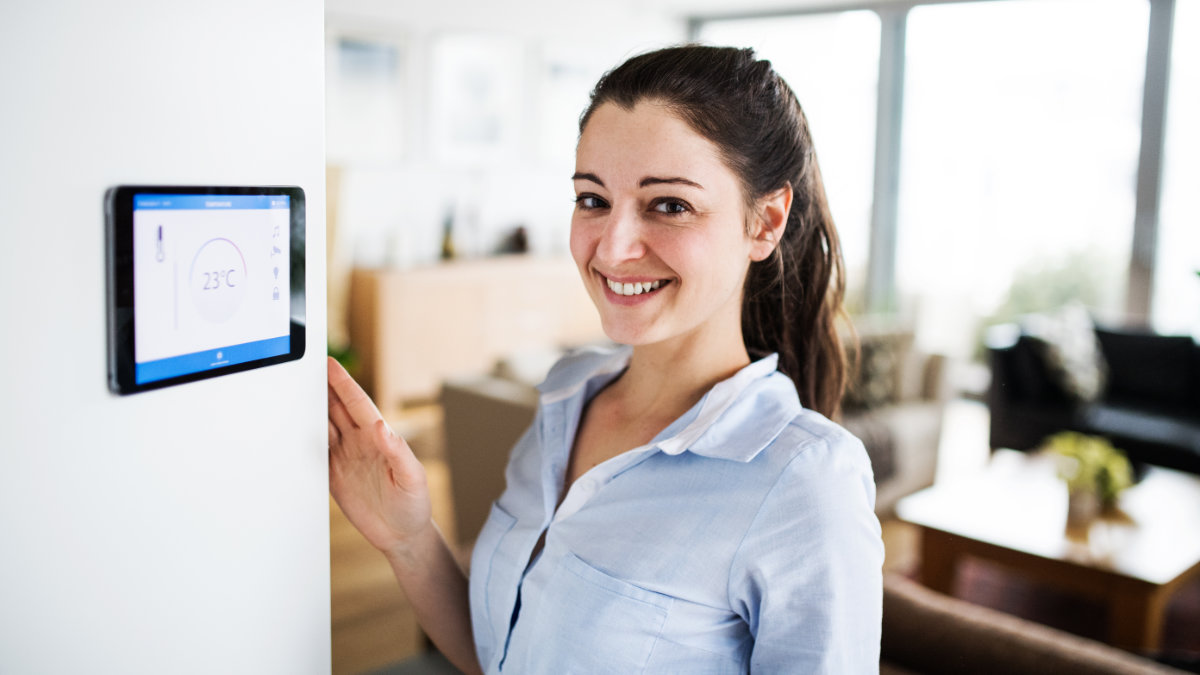While they haven’t been around for long, you might have heard of the term ‘smart meter’. But what is a smart meter? Smart meters are simply a new way to measure your gas or electricity usage. They are backed by the government as part of a wider initiative to help consumers adopt energy efficiencies that can help them save money on their energy bills.
All energy suppliers have been tasked with installing smart meters in every UK home by the end of 2020. As part of a nationwide roll-out that began in 2016, energy suppliers have been contacting customers to replace their old meter with a new smart meter. So far 11 million UK households have smart meters installed. You can also request one from your energy company.
Replacing your old analogue meter with a new electricity smart meter or gas smart meter has a number of advantages both for yourself and your energy provider.
Read our guide to learn what a smart meter does and how it can reduce your gas and electricity bills and what you need to do to do to make the switch.
What is a smart meter and how does it work?
A smart meter is the next generation of meter for electricity or gas. As with traditional meters, a smart meter measures how much gas or electricity you use.
However, smart meters don’t need to be ‘read’ either by yourself or a representative from your energy supplier. They automatically send your usage information to your supplier using the mobile phone network.
Smart meters provide both the energy supplier and the energy customer with detailed information including.
Energy consumption: how much gas and electricity has been used in kilowatt-hours in the last hour, week, and month.
Energy costs: how much you’ve spent in pounds. This is updated every 30 minutes so you always have the latest information on your spending.
Energy goals: some smart meters offer budgeting capabilities so you can set goals, reducing your energy consumption.
What is a smart meter: the benefits
So why make the switch from a traditional meter to a smart meter? There are a number of benefits to think about, including:
More control over your bills – A smart meter lets you see exactly how much energy you’re using, when you’re using it and what times it’s cheaper to use energy. All of this can help you to save money. You might spot a certain time of day in which you’re spending a lot on electricity. By making simple adjustments, such as using your dishwasher or washing machine at a different time, your bills can be lowered.
No guesswork – With a smart meter, there is no more paying your bills according to estimates. You’ve the peace of mind that comes from knowing you’re only paying for what you use.
No more meter reading – Smart meters are more convenient. The information on a traditional meter needs to be recorded in person – usually by a representative of the energy company. With a smart meter, however, data is sent directly to the energy supplier so there’s no need to hang around waiting for someone to arrive.
Avoid energy blackouts – With their ability to communicate with the central electricity system, smart meters can help reduce the number of failures in the wider electricity system avoiding blackouts. If your area sometimes experiences power cuts, it might be time to giving a smart meter a try.
Read our energy-saving tips: cut gas and electricity costs guide.
What is a smart meter: disadvantages
Of course, there are some reasons why you might not want to make the switch right now.
Installation disruption – Having a smart meter installed is relatively straightforward. An engineer from your energy supplier will come to your home and temporarily turn off the power while old meters are being swapped out for the new smart meters. Smart meters may have to be installed in a new location and very old meters can be tricky to replace, especially if they’re in hard to reach places.
If this feels like an inconvenience which you could do without, or if you are not comfortable with the idea of an energy company employee entering your home, you might not want to go through with a switch right away.
Smart meter accuracy – Not everyone is convinced of the complete accuracy of smart meters. Installing a smart meter involves placing a certain level of trust in your electricity supplier. Although the same could be said of having estimate readings.
Privacy concerns – Although your energy usage information might not be the most personal data, the fact remains that at present there seems no way to ensure the complete privacy of the information collected from your energy usage. This is something to consider before you make the switch to a smart meter.
Switching provider – Even with a smart meter installed, you always have the right to switch energy supplier – although you’ll have to abide by the terms and conditions of any tariff you signed up to. However, many smart meters users encounter problems when switching energy provider. The first generation of smart meters struggled to communicate the new energy supplier’s systems. They revert to dumb meters that still record energy usage but you’ll to read and submit meter readings again. The newer SMETS2 meters, being installed from late 2018, should resolve this issue.
What is a smart meter: how to make the switch
There are a number of key considerations for switching to a smart meter. Here are some of the steps to think about:
Smart meter costs – Be sure to know how much a smart meter will cost you, and to balance any costs against the potential to save money. While there are no upfront costs to having a smart meter installed, the actual cost of the smart meter rollout is paid for everyone’s slightly higher energy bills.
It’s also worth remembering that a smart meter won’t automatically lower your energy bills – you’ll have to be proactive in tracking how much energy you use and find ways to reduce this.
Many energy suppliers offer cheaper tariffs for smart meter customers. This is because smart meters help them understand households’ energy usages day and night so they can be more flexible with the types of tariffs they offer.
Contacting your energy company – All suppliers are now legally obliged to offer you the option of a smart meter. Your supplier might not be able to install a smart meter right away, but they should be able to tell you how long the wait will be.
What to expect – It is your supplier’s responsibility to ensure that your smart meter is installed properly and is in working order. They should explain the process in advance; instruct you on how to use the meter, leave you with an instruction manual, and offer a telephone number to call for assistance.
Looking for a new boiler? Read our guide to how to choose the best boiler to discover which type of boiler to choose and replacement boiler costs.
More questions about what is a smart meter?
Contact your energy supplier for more information. The Citizen’s Advice consumer helpline can also offer advice on smart meters and Smart Energy GB has more detailed information about what to expect from using a smart meter.
































































